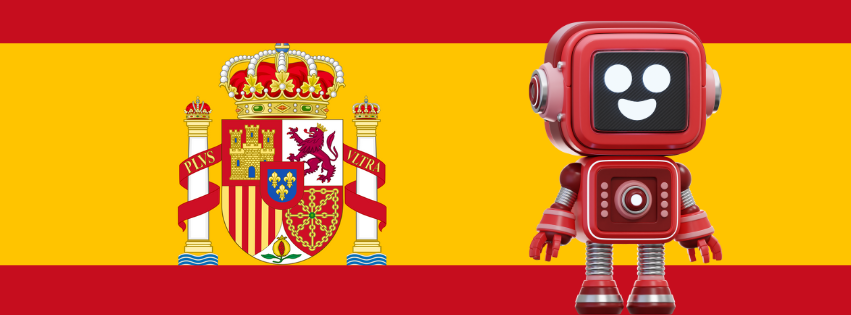Spain has been proactive in its approach to AI regulation, establishing a robust framework aimed at fostering innovation while ensuring ethical standards and societal benefits. The country’s AI regulatory landscape is characterized by various initiatives and strategies driven by multiple governmental bodies, each with specific objectives and timelines. This overview explores the key components of Spain’s AI regulatory framework, highlighting their goals, implementation strategies, and expected impacts.
The Spanish Strategy for Research, Development, and Innovation (RDI) in AI, initiated by the Ministry of Science and Innovation (MICIN) in 2019, lays the foundation for the country’s AI development efforts. This strategy aligns with the broader Spanish Strategy for Science, Technology, and Innovation (EECTI) 2021-2028. It focuses on creating an organizational structure for AI RDI, facilitating knowledge transfer, planning AI training and professionalization, developing a digital data ecosystem, and addressing AI ethics. The RDI strategy set the stage for Spain’s comprehensive National AI Strategy.
Formed in 2020, the AI Advisory Council serves as an advisory body to the Spanish government on AI-related matters. Under the Ministry of Economic Affairs and Digital Transformation (MINECO), the council provides analysis, advice, and support to the Secretary of State for AI and Digital Transformation. It evaluates and formulates proposals on the National AI Strategy, ensuring that the strategy evolves to meet emerging challenges and opportunities in AI.
Spain’s National AI Strategy, initiated in 2020 by the Ministry of Economic Affairs and Digital Transformation (MINECO) and the State Secretariat for Digitalisation and Artificial Intelligence (SEDIA), aims to create a trustworthy, inclusive, and sustainable AI environment. The strategy focuses on scientific excellence, innovation, digital capacity building, data platform development, AI integration in value chains, public administration support, and ethical AI frameworks. It seeks to position Spain among the leading countries in AI research and application.
In response to the COVID-19 pandemic, the Spanish government launched the Recovery, Transformation, and Resilience Plan in 2021. This plan integrates AI into various post-pandemic recovery initiatives, emphasizing the role of AI in restructuring the Spanish economy and society. The plan aims to leverage AI to drive economic modernization and social development.
Established in 2022 under the Ministry of Economic Affairs and Digital Transformation (MINECO), the Spanish Agency for the Supervision of AI is tasked with protecting citizens from potential AI risks. This includes ensuring physical safety and safeguarding fundamental rights. The agency aims to create measures that monitor and regulate AI applications, addressing issues such as algorithmic biases and the impact of AI on mental health. It emphasizes human-centered values, robustness, security, and safety in AI deployment.
The “D Generation” program, launched in 2022 and running until 2026, is a collaborative effort between the public and private sectors to promote digital skills and AI awareness. Coordinated by the Ministry of Economic Affairs and Digital Transformation (MAETD), the program aims to train society in digital skills, support SME digital transformation, balance digital skill demands with talent programs, and promote digital skill certification.
The AI Sandbox pilot project, initiated in 2022 and set to run until 2025, aims to ensure the responsible development of AI while mitigating potential risks. Managed by the Ministry of Economic Affairs and Digital Transformation (MAETD), the project involves collaboration between competent authorities and AI developers to create guidelines and best practices. The initiative focuses on operationalizing AI regulation, with final deliverables expected during Spain’s EU Council Presidency.
Launched in 2023 and running until 2026, the “Cátedras ENI” program is a notable initiative by the Ministry of Economic Affairs and Digital Transformation (MAETD). This program aims to enhance public-private collaboration through the creation of university-business chairs. These chairs focus on research, training, and dissemination in AI-related subjects, fostering a multidisciplinary approach. The primary objectives are to promote AI scientific research, facilitate knowledge transfer between universities and companies, and strengthen Spain’s position at the technological forefront.

